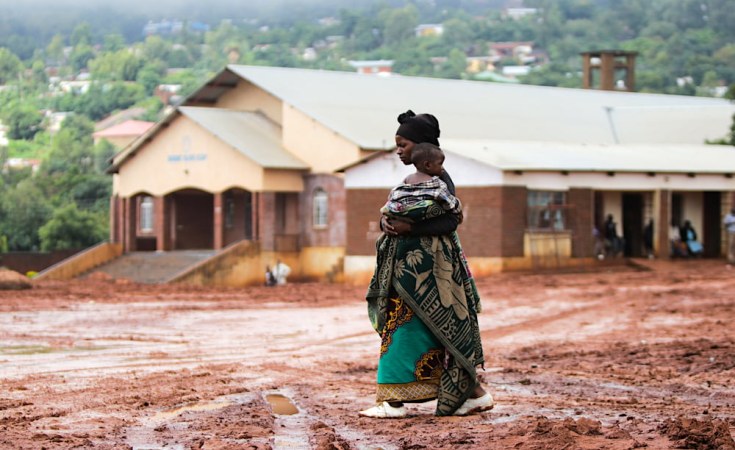Blantyre, Malawi — The U.N. humanitarian agency says Malawi needs immediate help to deal with diseases spreading in displacement camps for Cyclone Freddy survivors. The Malawi health minister told reporters Tuesday that the government is beefing up its medical staff but a local newspaper says the country needs more money to adequately deal with healthcare needs.
Malawi has over 500 displacement camps for people affected by Cyclone Freddy, which also hit Mozambique and Madagascar.
In its Tuesday Flash Update, the U.N. Office for the Coordination of Humanitarian Affairs, or OCHA, says heath issues are rising in the camps due to a lack of clean drinking water and adequate sanitation.
It says diseases such as cholera, scabies, and acute respiratory infections have been reported in some camps.
Khumbize Kandodo Chiponda is minister of health in Malawi.
She told a press conference that the main challenge has been a shortage of medical workers.
"So, we are beefing up our staff levels as well. We have been recruiting. I think over the past two weeks we have recruited over 300 health workers in the southern region just to beef up our health services in the health sector," said Chiponda.
However, a local newspaper reported Tuesday that Malawi needs about $3 million to address health needs created by the devastating cyclone.
The World Health Organization says the unusually long-running cyclone destroyed more than 300 health facilities in Madagascar, Malawi and Mozambique, leaving many communities without sufficient access to health services.
In Malawi and Mozambique, the cyclone hit amid already-exisitng cholera outbreaks.
It says additionally, malaria cases have been reported in multiple camps, requiring medical attention and the provision of mosquito nets to prevent further spread of the disease.
Maziko Matemba is the community health ambassador in Malawi.
He told VOA that outbreaks of diseases in the camps were expected.
"And already Blantyre and those sites already had cholera. So, this would just be an increase to where we came from," said Matemba. "But also, another assessment which we have done, you know, people are coming from different places to support people who are trapped. What would happen is that those people can also migrate several diseases; cholera, COVID."
Matemba says that for people displaced from their homes, mental health is also a challenge.
"Before parliament signs off, or of all the requests that are happening in parliament, health has to be considered as one of the areas apart from infrastructure reconstruction because we are talking of mental health; it's a big issue in those areas as well," said Matemba.
In the meantime, several humanitarian organizations are supporting Malawi to address its health concerns.
The WHO and Doctors Without Borders have sent medical workers to hard-to-reach areas to assist those trapped because of roads that remain cut off.


